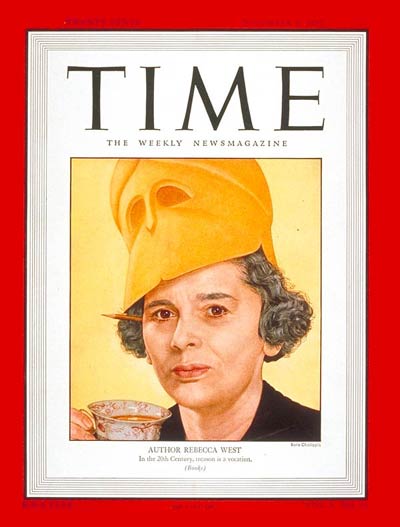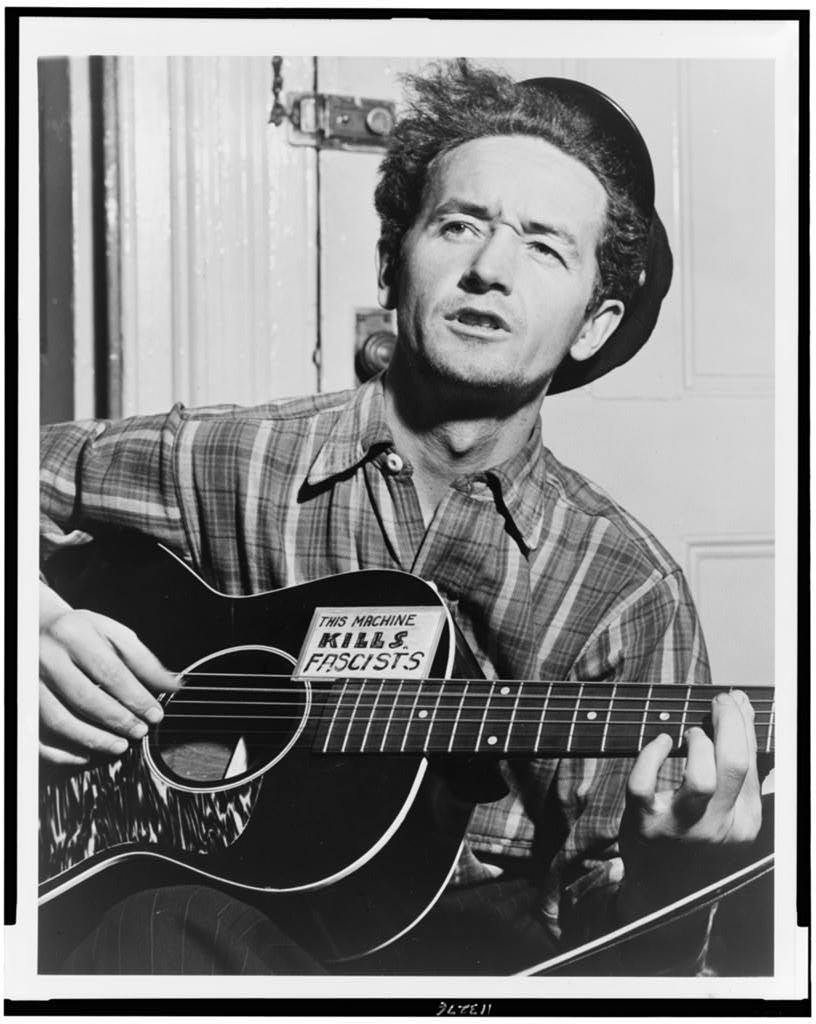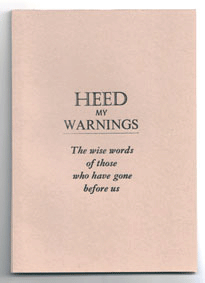Battle of Big Thinking
If anyone is interested I have uploaded my speech from The APG's Battle of Big Thinking as well as the slides.
For regular readers many of the themes will be very familiar.
Image courtesy of Wikimedia.
Wisdom must be caught not taught
I'm in love with the aphoristic form as you well know. And I think they are extremely handy in our business. Certainly in persuading people of a point of view or course of action - such as David Ogilvy's why keep a dog and bark yourself, or Bill Bernbach's we must stop believing in what we sell and start selling what we believe in.
The are also great in framing strategies, approaches and ideas - no one is interested in your positioning, they only want to know your position or Coherence is more important than consistency for example. And on occasions great brand thoughts can take an aphoristic form, I'd argue they are the ones that get remembered best.
So imagine my delight when Russell gave me "The World in a phrase - A brief history of the aphorism" by James Geary.
Quite apart from being a concise history of the greatest aphorists of all time from Lao Tsu to Dr Seuss, Mr Geary also gives us a little ready reckoner for our own aphorisms, those expressions that in Mark Twain's definition offer the minimum of sound to the maximum of sense.
1. It must be brief - "When you find yourself in extremis, aphorisms tell you everything you need to know", how about Baltasar Gracians' attempt easy tasks as if they were difficult and difficult tasks as if they were easy?
2. It must be definitive - "Aphorisms assert rather than argue, proclaim rather than persuade, state rather than suggest" like those of Dr Johnson famous for the phrase Patriotism is the last refuge of the scoudrel
3. It must be personal - Aphorisms must bear the hallmark and ideosyncracies of the aphorist otherwise they are simply proverbs - aphorisms that have lost any trace of the mind that originated them.
4. It must have a twist - Ideally they should have a sudden sting in the tail that gives you a jolt, a punch line like that of a joke. Witness Chateaubriand's An orginal writer is not one that imitates no one but one whom no one can imitate.
5. It must be philosophical - "They are like porcupines, bristling with prickly philosophical spines. Rub them the wrong way and you are in for a surprise". Nietzche's good and evil are the prejudices of God is a pretty decent example of that if you ask me. Chamfort's celebrity: the advantage of being known by those who do not know you is pretty good too.
But perhaps the best thing about it is that in one short little book the life and works of some of the greatest thinkers are delivered up in digestable form. No idea about Wittgenstein? Seen all those quotes by Ralph Waldo Emerson on the internet but no clue as to who he was? Want to be able to use Confucius in your next pitch? Then this is the book for you.
New adliterate aphorisms ahoy
 Rebecca West, feminist, novelist and HG Wells' lover.
Rebecca West, feminist, novelist and HG Wells' lover.
Here is one of hers "I myself have never been able to find out what feminism is; I only know that people call me a feminist whenever I express sentiments that differentiate me from a doormat or a prostitute."
And here are a bunch of mine largely taken from recent posts...
In praise of the slogan

A shamless use of Woody Guthrie for no other reason than the photo is excellent and boy is that a slogan
It seems that the classic advertising slogan has fallen deeply out of fashion.
Though I have spent much of my career gleefully watching the brand slogan’s demise, I am not so sure that my callous disdain was entirely appropriate.
This is partly because of my new found interest in aphorisms and the power that they have to compress thinking into elegant and edible phrases purpose built for consumption, repetition, memorability and transmission. Slogans work a bit like that.
And partly because, if I am honest, I actually like them.
I blame post-modern advertising agencies (“let’s make a un-ady ad”), brand consultancies (“lets just describe what they do and in any case we don’t have any good copywriters”) and digital fetishists (“I can’t see a slogan working in Second Life”).
Together they conspired to create a communications landscape of dreary single word lines like True and Real, dreary colloquialisms like ‘Chin up’ and ‘I’m lovin’ it' and dreary expressions of the bleeding obvious like ‘Carphone Warehouse. For all your mobile life’ and ‘Go. The low cost airline from British Airways’.
Heresy of heresies I’m not even sure about ‘Just do it’ or ‘Every little helps’.
And as for ‘Try something new everyday’ - great strategy but was the copywriter taking a sickie that day?
I want to fly the flag for the humble slogan.
At best these were never just ad ideas but big brand building thoughts like ‘A Mars a day helps you work, rest and play’.
Yes they use alliteration (the repetition of consonant sounds), yes they use assonance (the repetition of vowel sounds), yes they use rhyme (the repetition of ending sounds) and yes they use puns (the use of words that have two or more meanings). And what is so wrong with that?
These approaches, documented in more detail in Greg Myers’ Words in Ads gave us gems like:
Top people take the Times
Gillette, the best a man can get
No ring goes like a ringo goes
That’ll be the Daewoo
Beanz Meanz Heinz
Chuck out your chinz
You know when you've been Tango'ed
I predict the renaissance of the slogan.
I expect your contributions to my slogan compendium.
Here is a little tool I found on Pink Air to aid your sloganeering
Aphorisms revisited

A wonderful pamphlet by S.O.R.T design - The Society of Revisionist Typographers
I’ve been thinking about aphorisms again and why they are such wonderful things.
I’ve been thinking about aphorisms again and why they are such wonderful things.
It was partly because a planner called Mohammed Iqbal at O&M in Bangalore sent me a paper on the power of aphorisms or ‘wisdom literature’ as he calls them.Download file.
He talks about aphorisms as the world’s first information sharing network and ponders why we remember the wisdom encoded in aphorisms but find company intranets so useless.
And then I read David Ogilvy’s ‘Confessions of an advertising man’ in which the aphorisms that David created about this business are all on show from ‘if you pay peanuts you get monkeys’ to ‘why keep a dog and bark yourself?’
And then I came across ‘Heed my warnings’ a beautiful little pamphlet from S.O.R.T Design in Magma, which gives wise words edible typographic treatments including ‘zeal without knowledge is the sister of folly’ – a clear watch out for all of us who blog.
Now, as you know I am not sure about the the aphoristic form in advertising itself (though I recognise many of the brand lines that have endured have an aphoristic form) but rather in the business of advertising – helping to make the ideas we create more attractive and to promote our actions and advice.
Their power is that they deliver a truth or strong point of view in a form that is built for memorability and for repetition and transmission to others.
But having read Iqbal’s paper I realise they go deeper than this.
As humans we are pre-disposed to accept ideas presented in the aphoristic form as truth. Since they were the preliterate means of distributing wisdom (like the folly of eating the red berries or taking the seemingly quick view over the mountains) we invest them with moment, real meaning and truth.
So when Ogilvy says ‘we sell or else’ or S.O.R.T Design repeat wisdom like ‘a smooth sea never made a good mariner’ or Tony Blair says he will be 'tough on crime and tough on the causes of crime' we recognise the sense of the advice being given but we also respond to a form of communication that we are pre-disposed to believe.
Handy little things really.
Cool memories

"Do not take the side of those already in the right" Jean Baudrillard
As regular readers will know I am into this aphorism thing big time. I love the way a well crafted aphorism has both function and form. They contain powerful and provocative thoughts packaged in such a way to make them disarmingly simple, edible and memorable.
So how cool is this. Old Baudrillard goes and writes his fifth collection of memories appropriately called 'Cool Memories V' entirely in the aphoristic form. No chronologies or lists of places he visits just the pithy clever stuff he thought at the time.
Makes my attempts at the form look pathetic. But then again as my partner says "he is one of the greatest philosophical thinkers of the late 20th century and you are just some idiot who works in advertsing".
Every planner should have the quote at the top of the post written on a piece of paper and kept under their pillow.
Magnificent
Aphorism toolkit
"You can lead a horticulture but you can't make her think" Dorothy Parker I think aphorisms rock and make any strategy, presentation, brief, conversation go with a swing. So here is a little aphorism tool kit....I find it handy to carry around in my head a clutch of sayings, quotes and famous phrases that can be repurposed willy nilly as neat aphorisms for any occasion.
Its not the most original way to create a good aphorism but it was good enough for Dorothy Parker so its good enough for me. Here are a handful of the most useful
1) "All animals are equal but some are more equal than others" (Orwell) - Handy if you want to elevate one brand in the portfolio, one strategy under discussion or one channel in the media plan.
2) "Tough on crime, tough on the causes of crime" (Blair) - Tough on churn, tough on the causes of churn is particularly good for Sky. Your brand will have its own issues you need to come down hard on.
3) "Education, education, education" (Blair) - Good if you want to highlight just how important something is to the cause. Best if the words concerned end in 'tion' like facilitation or rotation or perhaps irritation.
4) "Its the ecomnomy stupid" (Clinton) - same as above. I once wrote a proposition using this base for Tango aimed at getting the brand focused back on what had made them famous.'Its the Oranges stupid' worked a treat.
5) "There's life Jim but not as we know it" (Star Trek) - I used this one recently to illustrate that in the seemingly own label dominated dairy market there are brands but not as we know them. Works particularly well if your CEO is called Jim
6) "Reasons to be cheerful, one , two, three" (Ian Dury) - I was once involved in an ad for Briatin's leading muesli that used the late Mr Dury's song (indeed he re-recorded it for us) and the line 'reasons to eat Alpen, one, two, three'. Gives any list of recommendations a lyrical boost. But I'm still ashamed of the Alpen ad.
7) "It does exactly what it says on the tin" (HHCL for Ronseal) - Bit obvious but its a phrase for which there is actually no readily available alternative - thats why we use it all the time. Try manipulating it into your own aphorism rather than just quoting it.
8) Anything from Withnail as long as you are only talking to other Withnail fans - otherwise 'here, strategy, here' is likely to be meaningless.
Give me more that we might all shamlessly plunder them.
Adliterate aphorisms
 "Consistency is the last refuge of the unimaginative" Oscar Wilde - Aphorist par excellence
"Consistency is the last refuge of the unimaginative" Oscar Wilde - Aphorist par excellence

"Consistency is the last refuge of the unimaginative" Oscar Wilde - Aphorist par excellence
Aphorism (From the Greek, to define), literally a distinction or a definition, is a term used to describe a principle expressed tersely in a few telling words, in such a way that when once heard it is unlikely to pass from the memory. Source: Wikipedia
Here ten of mine with the emphasis on the word terse.
1) In my day we make our own entertainment
2) New media is too important to be left to new media agencies
3) There is no such thing as a low interest category only low interest thinking
4) Every brand needs an opinion, opinions are the life blood of conversation
5) Ad avoidance has become so endemic it is almost a national sport
6) The IPA effectiveness awards wouldn't win an award for effectiveness
7) Only poor advertising has a predictable result
8) You are more likely to be right by trying to be interesting than by trying to be right
9) What good is the fame that comes from having your ads talked about without the fortune that comes from having your brand talked about?
10)Great brands create culture, weak brands copy it